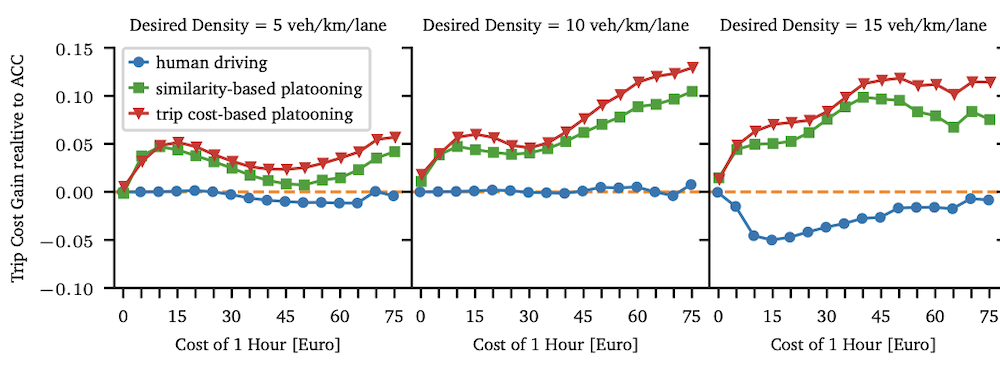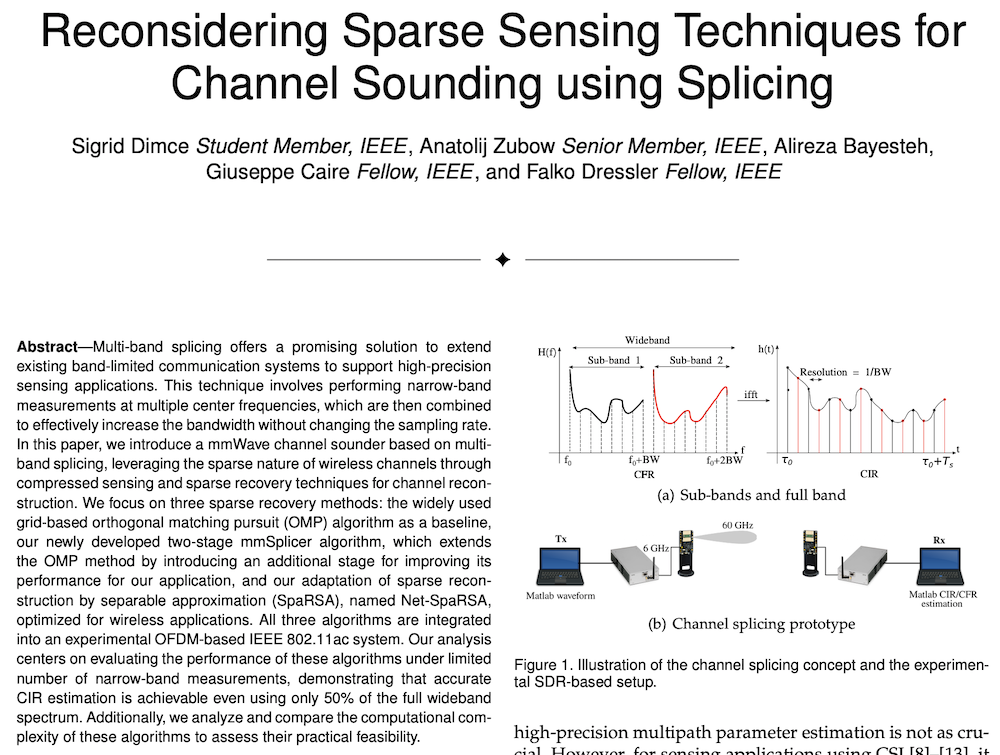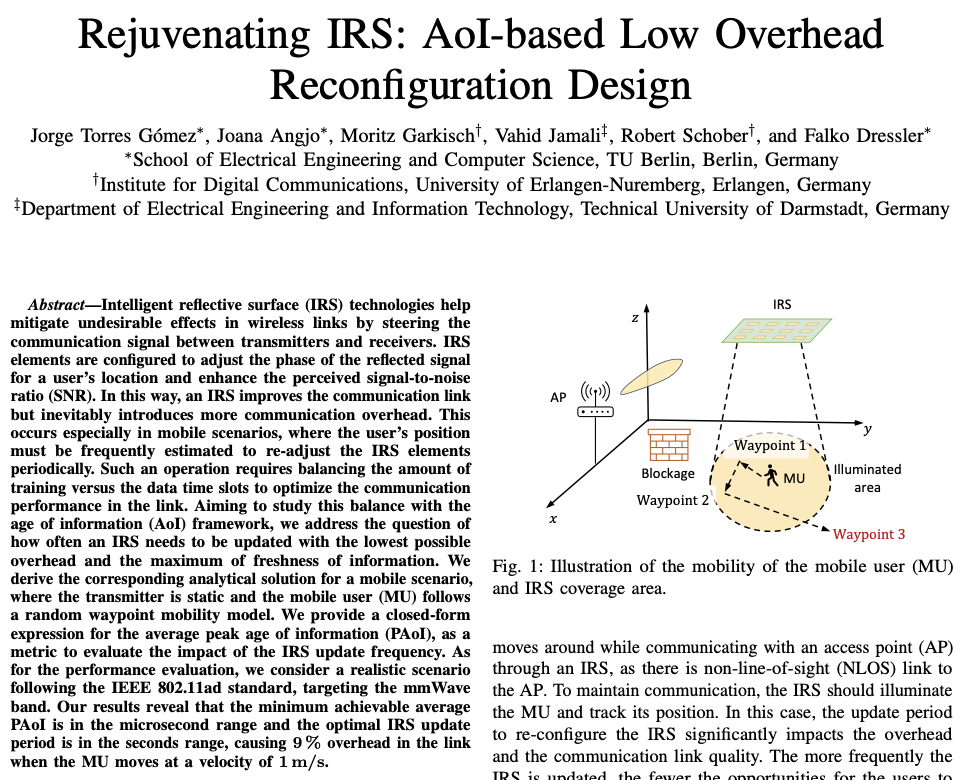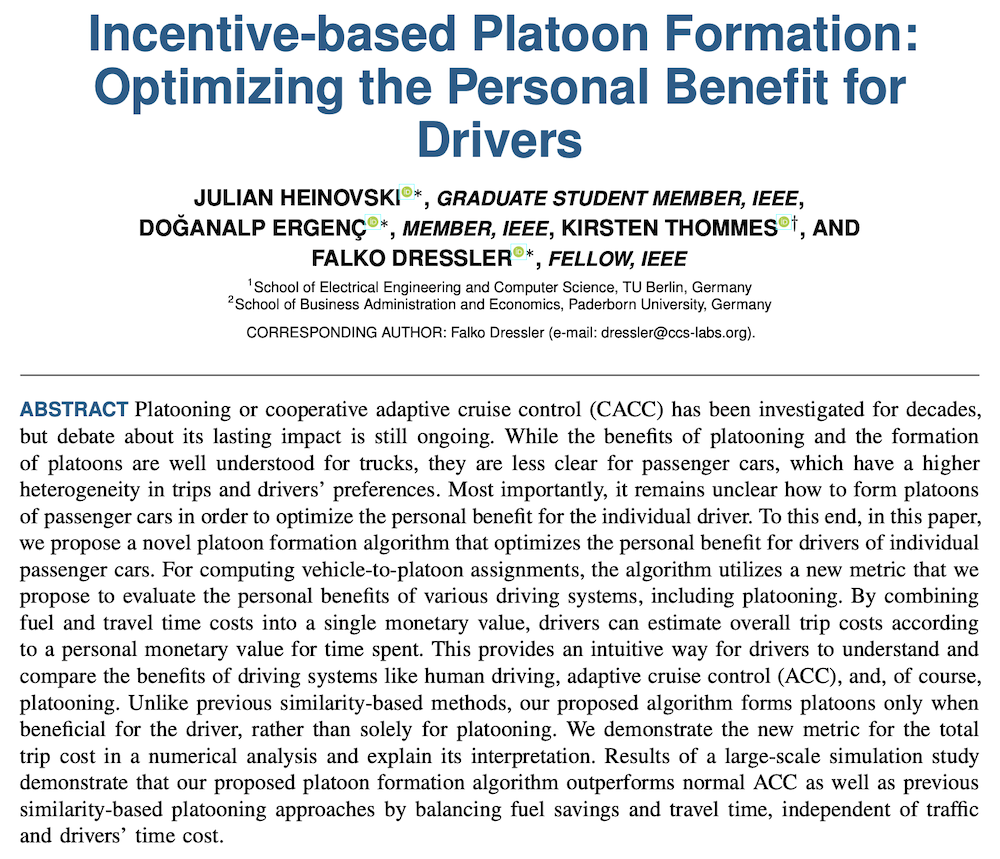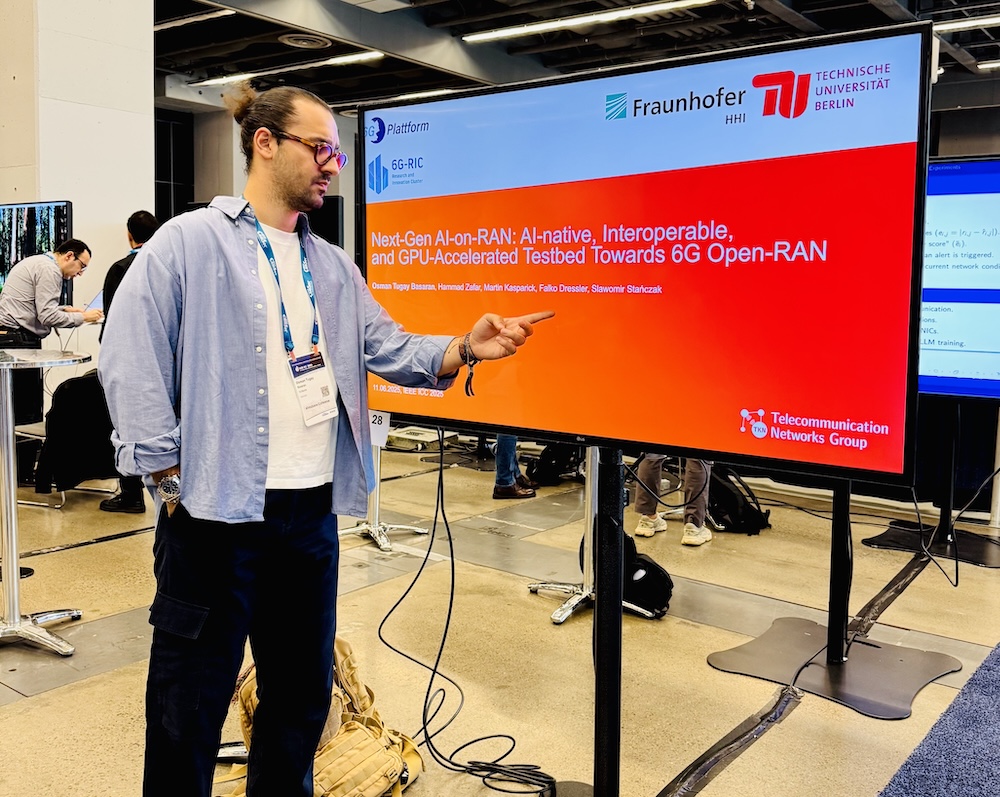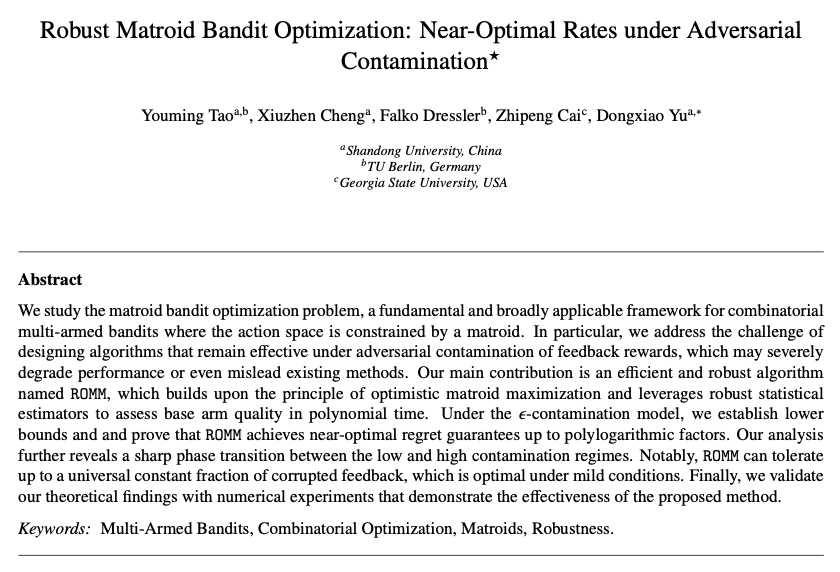Literature Database Entry
bloessl2013gnu
Bastian Bloessl, Christoph Leitner, Falko Dressler and Christoph Sommer, "A GNU Radio-based IEEE 802.15.4 Testbed," Proceedings of 12. GI/ITG KuVS Fachgespräch Drahtlose Sensornetze (FGSN 2013), Cottbus, Germany, September 2013, pp. 37–40.
Abstract
We present a Software Defined Radio (SDR) based IEEE 802.15.4 transceiver testbed for GNURadio. Our testbed is Open Source and fully interoperable with off-the-shelf TelosB sensor motes and the Contiki sensor mote operating system, from the physical layer to the network stack. The testbed can be setup and configured easily via a graphical user interface and applications can interface with the SDR using TCP sockets. Furthermore, the SDR is able to log traffic in PCAP format to investigate networks with common software like Wireshark. We believe the main applications of the transceiver to be twofold. First, the communication stack has a modular, layered structure, which allows for rapid prototyping, is educational, and is easy to grasp, lowering the steep learning curve that SDRs typically have. Secondly, the integration of a network stack in GNURadio pushes interoperability from the physical to the network and application layer and thus enables the investigations of higher layer metrics with SDRs.
Quick access
Authors' Version ![]() (PDF on this web site)
(PDF on this web site)
BibTeX ![]()
Contact
Bastian Bloessl
Christoph Leitner
Falko Dressler
Christoph Sommer
BibTeX reference
@inproceedings{bloessl2013gnu,
author = {Bloessl, Bastian and Leitner, Christoph and Dressler, Falko and Sommer, Christoph},
title = {{A GNU Radio-based IEEE 802.15.4 Testbed}},
pages = {37--40},
address = {Cottbus, Germany},
booktitle = {12. GI/ITG KuVS Fachgespr{\"{a}}ch Drahtlose Sensornetze (FGSN 2013)},
month = {9},
year = {2013},
}
Copyright notice
Links to final or draft versions of papers are presented here to ensure timely dissemination of scholarly and technical work. Copyright and all rights therein are retained by authors or by other copyright holders. All persons copying this information are expected to adhere to the terms and constraints invoked by each author's copyright. In most cases, these works may not be reposted or distributed for commercial purposes without the explicit permission of the copyright holder.
The following applies to all papers listed above that have IEEE copyrights: Personal use of this material is permitted. However, permission to reprint/republish this material for advertising or promotional purposes or for creating new collective works for resale or redistribution to servers or lists, or to reuse any copyrighted component of this work in other works must be obtained from the IEEE.
The following applies to all papers listed above that are in submission to IEEE conference/workshop proceedings or journals: This work has been submitted to the IEEE for possible publication. Copyright may be transferred without notice, after which this version may no longer be accessible.
The following applies to all papers listed above that have ACM copyrights: ACM COPYRIGHT NOTICE. Permission to make digital or hard copies of part or all of this work for personal or classroom use is granted without fee provided that copies are not made or distributed for profit or commercial advantage and that copies bear this notice and the full citation on the first page. Copyrights for components of this work owned by others than ACM must be honored. Abstracting with credit is permitted. To copy otherwise, to republish, to post on servers, or to redistribute to lists, requires prior specific permission and/or a fee. Request permissions from Publications Dept., ACM, Inc., fax +1 (212) 869-0481, or permissions@acm.org.
The following applies to all SpringerLink papers listed above that have Springer Science+Business Media copyrights: The original publication is available at www.springerlink.com.
This page was automatically generated using BibDB and bib2web.

